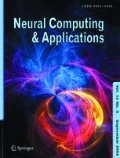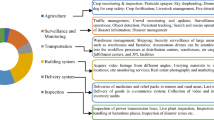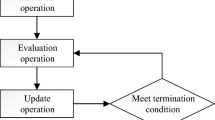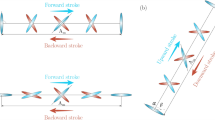This paper presents the application of the recently developed Minimal Resource Allocating Network (MRAN) for aircraft flight control, with special emphasis on its robustness and fault tolerance properties. MRAN is a dynamic Radial Basis Function network (RBFN) incorporating a growing and pruning strategy resulting in a compact network structure. For the aircraft control application presented here, a simple scheme in which MRAN aids a conventional controller using a feedback error learning mechanism is presented. The robustness and the fault tolerant nature of the neuro controller is illustrated using a F8 fighter aircraft model in an autopilot mode. The objective of the controller is to follow the velocity and pitch rate pilot commands under large parameter variations and sudden changes in actuator time constants. Simulation results demonstrate the satisfactory performance of the MRAN neuro-flight controller even under these faulty conditions.
Similar content being viewed by others
Author information
Authors and Affiliations
Rights and permissions
About this article
Cite this article
Li, Y., Sundararajan, N. & Saratchandran, P. Neuro-Flight Controllers for Aircraft Using Minimal Resource Allocating Networks (MRAN). Neural Comput & Applic 10, 172–183 (2001). https://doi.org/10.1007/s005210170009
Issue Date:
DOI: https://doi.org/10.1007/s005210170009




